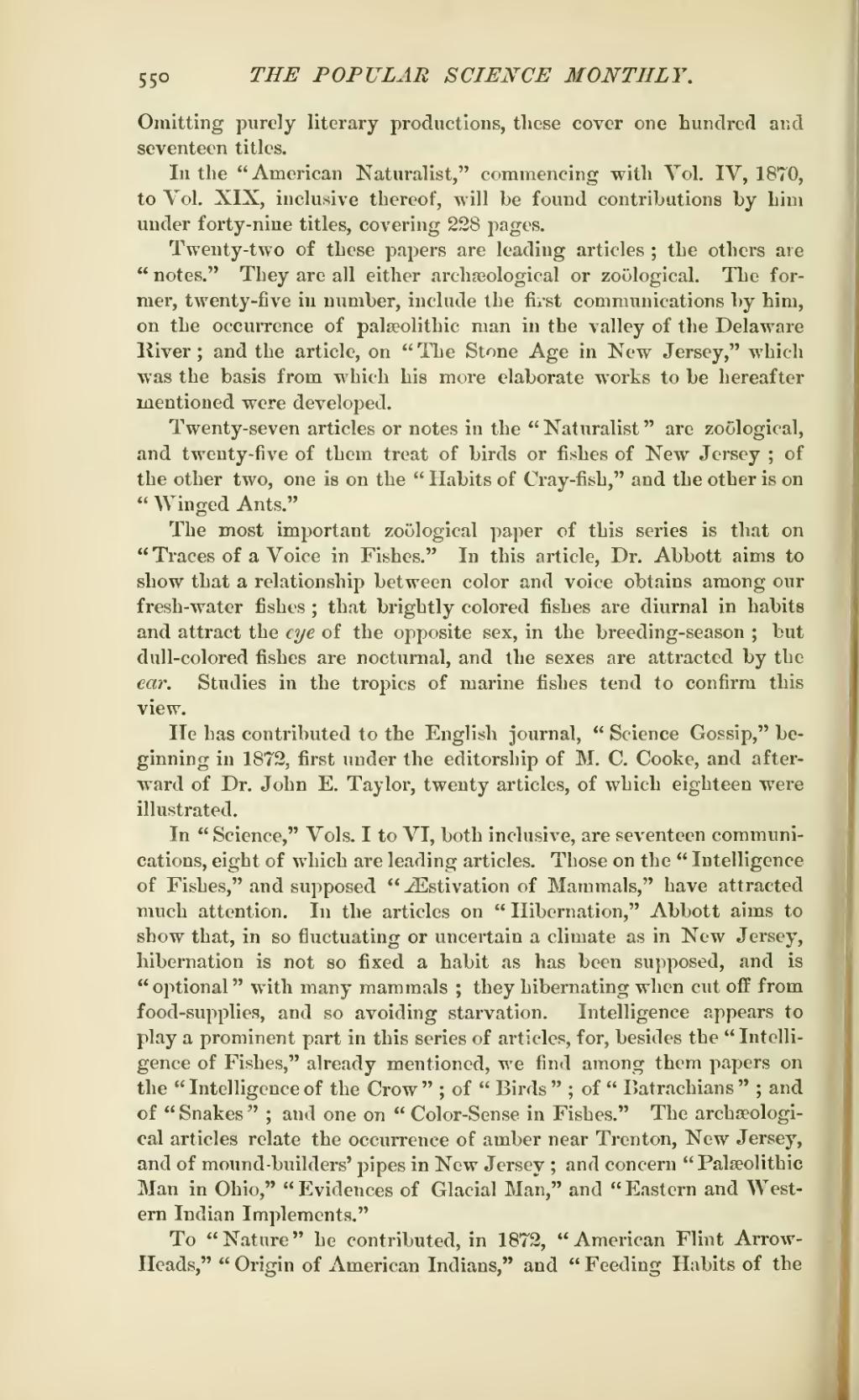Omitting purely literary productions, these cover one hundred and seventeen titles.
In the "American Naturalist," commencing with Vol. IV, 1870, to Vol. XIX, inclusive thereof, will be found contributions by him under forty-nine titles, covering 228 pages.
Twenty-two of these papers are leading articles; the others are "notes." They are all either archæological or zoölogical. The former, twenty-five in number, include the first communications by him, on the occurrence of palæolithic man in the valley of the Delaware River; and the article, on "The Stone Age in New Jersey," which was the basis from which his more elaborate works to be hereafter mentioned were developed.
Twenty-seven articles or notes in the "Naturalist" are zoölogical, and twenty-five of them treat of birds or fishes of New Jersey; of the other two, one is on the "Habits of Cray-fish," and the other is on "Winged Ants."
The most important zoölogical paper of this series is that on "Traces of a Voice in Fishes." In this article. Dr. Abbott aims to show that a relationship between color and voice obtains among our fresh-water fishes; that brightly colored fishes are diurnal in habits and attract the eye of the opposite sex, in the breeding-season; but dull-colored fishes are nocturnal, and the sexes are attracted by the ear. Studies in the tropics of marine fishes tend to confirm this view.
He has contributed to the English journal, "Science Gossip," beginning in 1872, first under the editorship of M. C. Cooke, and afterward of Dr. John E. Taylor, twenty articles, of which eighteen were illustrated.
In "Science," Vols. I to VI, both inclusive, are seventeen communications, eight of which are leading articles. Those on the "Intelligence of Fishes," and supposed "Æstivation of Mammals," have attracted much attention. In the articles on "Hibernation," Abbott aims to show that, in so fluctuating or uncertain a climate as in New Jersey, hibernation is not so fixed a habit as has been supposed, and is "optional" with many mammals; they hibernating when cut off from food-supplies, and so avoiding starvation. Intelligence appears to play a prominent part in this series of articles, for, besides the "Intelligence of Fishes," already mentioned, we find among them papers on the "Intelligence of the Crow"; of "Birds"; of "Batrachians"; and of "Snakes"; and one on "Color-Sense in Fishes." The archæological articles relate the occurrence of amber near Trenton, New Jersey, and of mound-builders' pipes in New Jersey; and concern "Palæolithic Man in Ohio," "Evidences of Glacial Man," and "Eastern and Western Indian Implements."
To "Nature" he contributed, in 1872, "American Flint Arrow-Heads," "Origin of American Indians," and "Feeding Habits of the
